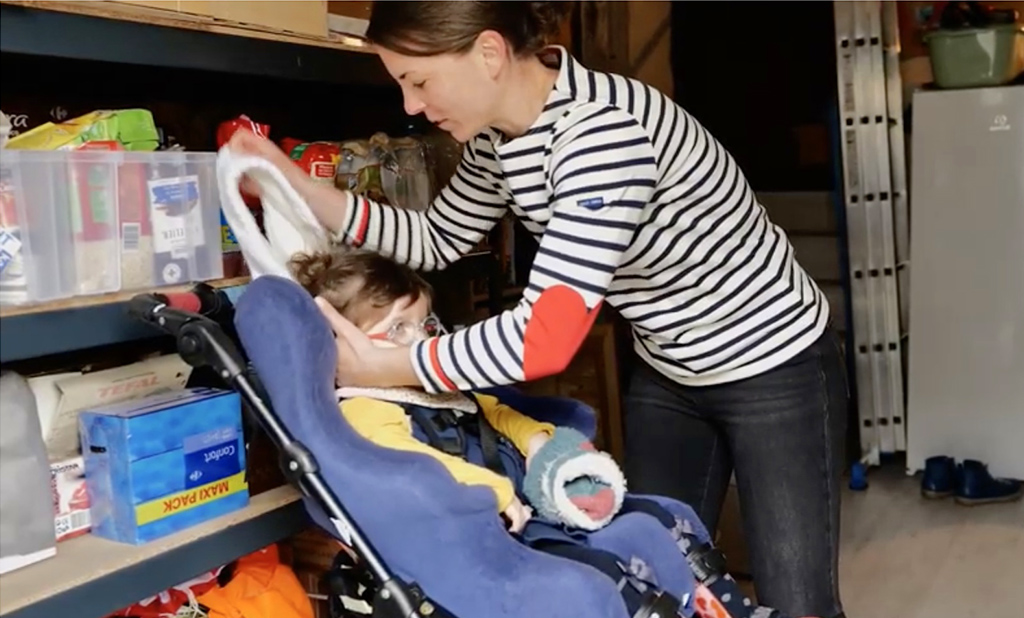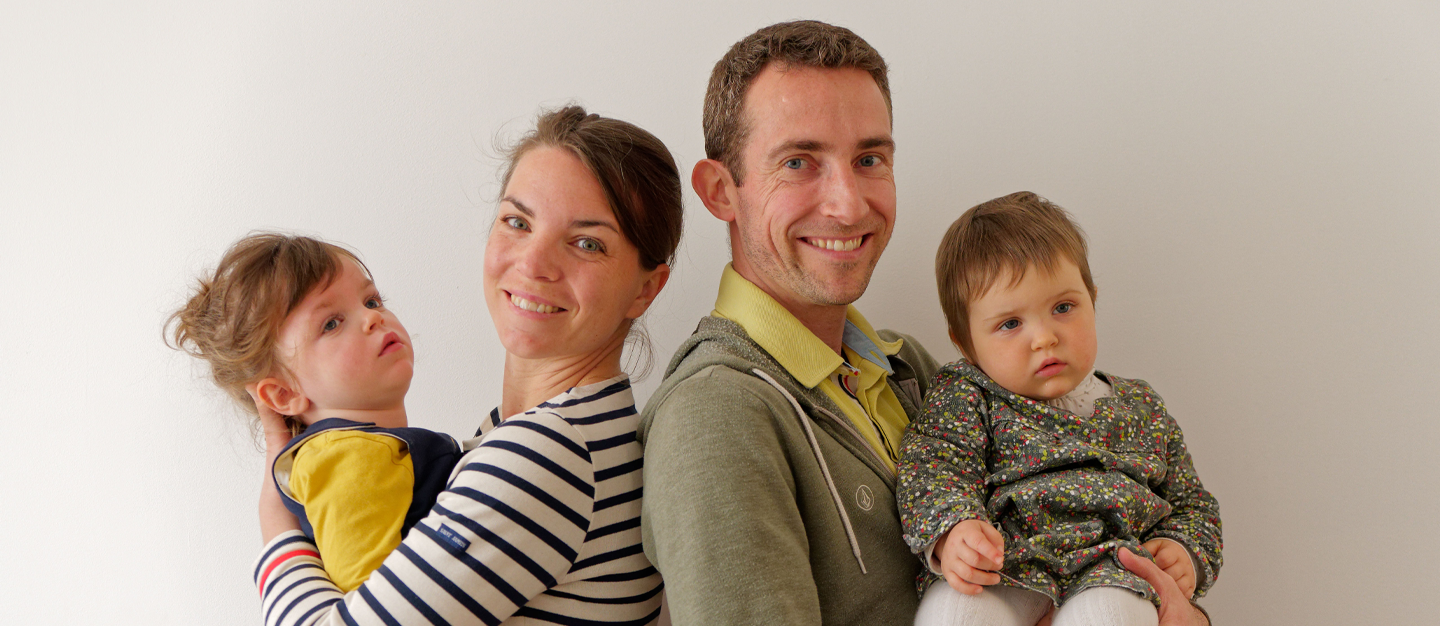Very early on, Alice developed balancing problems
Something was making her suffer…
Before becoming parents, Florence and Emmanuel had never heard of leukodystrophies. And then Alice was born, three and a half years ago, and Coline, 18 months later. At the age when Alice should have started walking, she showed balancing problems. In the summer when she was two years old, she fell even more. The following months did not help, as her frequent crying was a clear indication that something was making her suffer.
The diagnosis was made at the beginning of the first lockdown, “metachromatic leukodystrophy”, a barbaric name for a disease that is just as barbaric.
“The neuro-paediatrician at the university hospital in Angers advised us to contact the ELA Association,” recalls Florence, her mother, who had to learn the terrible news alone during the MRI at the hospital, given the health restrictions in force.
The deterioration is immediate…
In less than a month, despite the mobilisation of her entire family and a strong medical team, Alice lost her speech and the ability to sit still without help.
“Things are happening so fast that we hardly have time to realise it. Fortunately, we were well accompanied by our family and friends. The ELA association was very reactive, it opened its social network to us so that we could exchange with other parents. Today, it accompanies us and helps us to make everyday life bearable”.
18 months later, Coline was also diagnosed
She has the same deficient gene..
Genetic analysis carried out without delay for Coline came back positive. She too carries this deficient gene. However, if Alice’s condition is no longer compatible with enzyme therapy, which is still in the experimental stage, Coline may benefit from gene therapy to stop the progression of the disease.
A new treatment is possible
The principle of gene therapy is to perform a bone marrow autograft to modify her stem cells and enable her to synthesise the enzyme she lacks. The family did not hesitate for a second and travelled to Milan, where the treatment had just been approved for marketing.
“Our companies have been extremely supportive in facilitating our departure. On site in Italy, we were provided with a flat with rent adapted to the family’s income and Coline was given a transplant on 17 July.” The little girl puts up with this act as best she can, which is far from harmless.
Hope is there!
Little by little, Coline is learning to walk and discovers the joy of saying words. Of course, she may not yet be able to climb stairs, jump or run like most children her age, but she is making progress, and that’s what matters.
At the university hospital, where she is being closely monitored, her health check-ups are promising: she is now synthesising her enzyme perfectly. Hope is there!
Thanks to your generosity, ELA supports families on a daily basis
Giving Alice and Coline quality of life is now their parents’ goal
Alice can go back to her local nursery every morning, thanks to the help of a school life assistant and a teacher full of good ideas to make her life easier. She likes to go for a walk, listen to the birds, watch her sister play with dolls, get cuddled: with or without lockdown, the important thing today is to savour moments in life, within the family cocoon in which everyone draws strength.
Her parents were able to return to work, with the help of a nanny at home.
“In this ordeal, you have to know how to adapt and simplify your life, and ELA helps us with this”, confides Florence, a young mother who is lucid and determined.
Supporting families, an essential mission of ELA
There are many needs in the face of the progression of the disease, be them psychological, administrative or financial. ELA provides support to families, assists them in their administrative procedures, contributes to the financing and improvement of the childrens’ living conditions, organises leisure activities adapted to their disability and finances respite moments for families.

